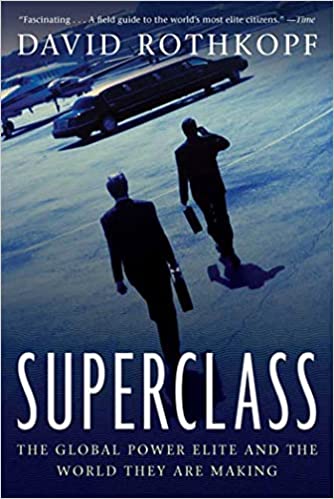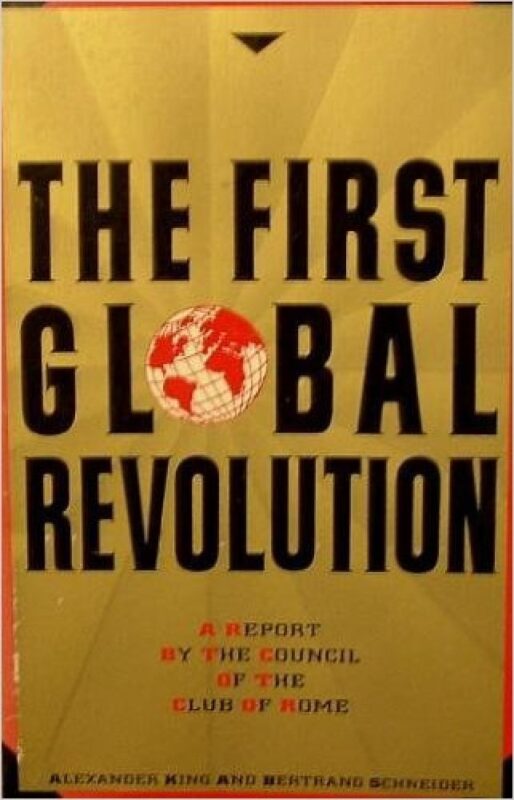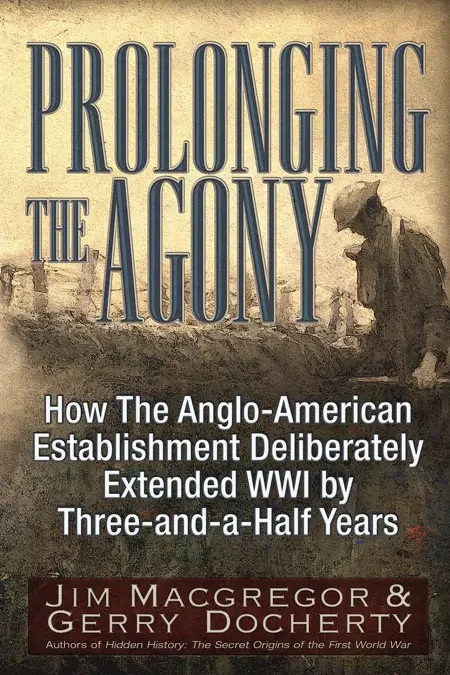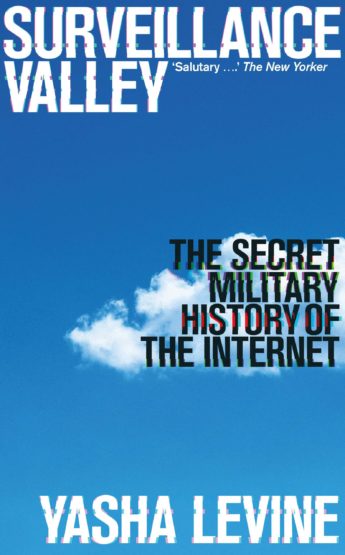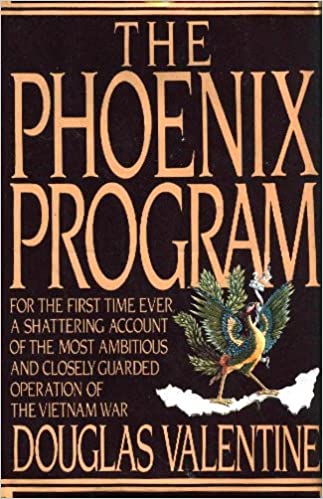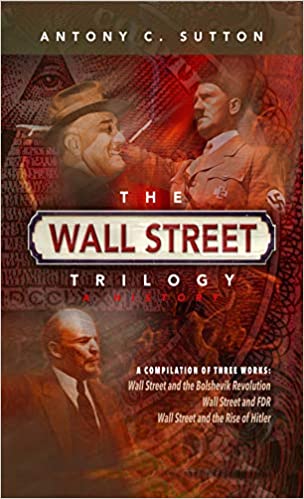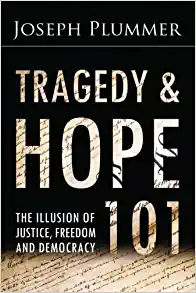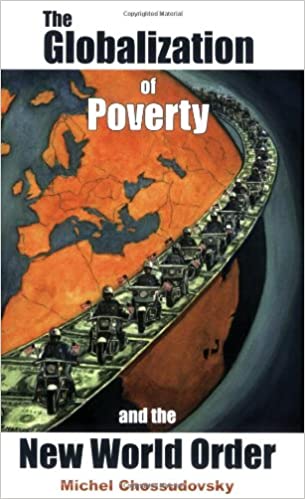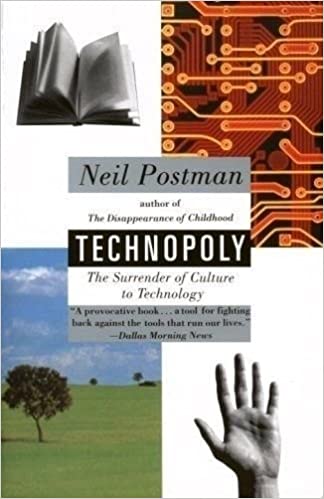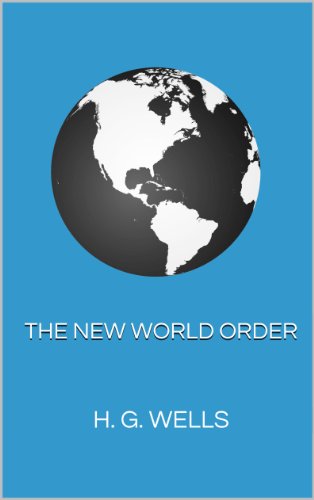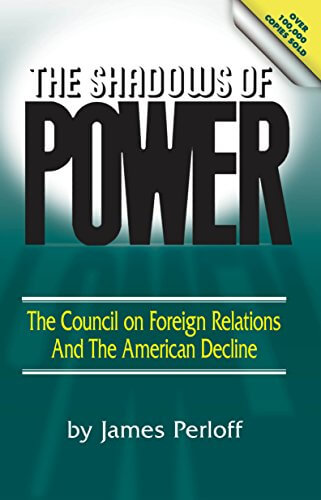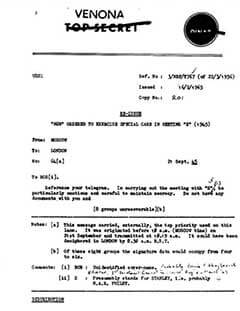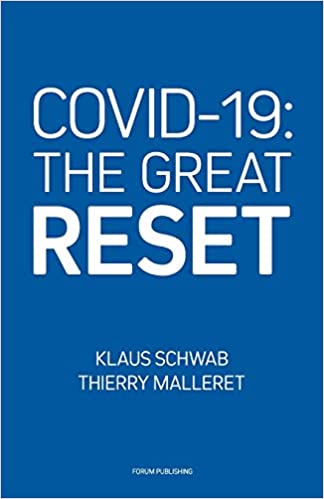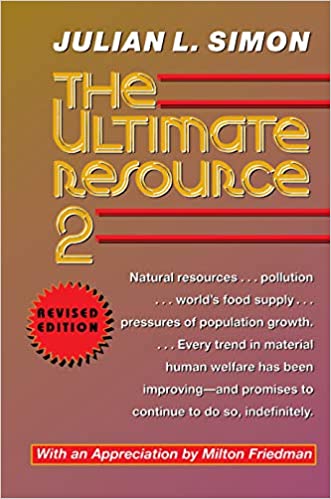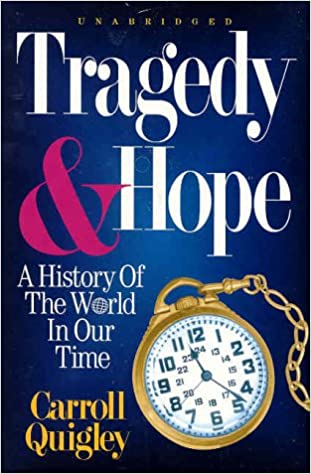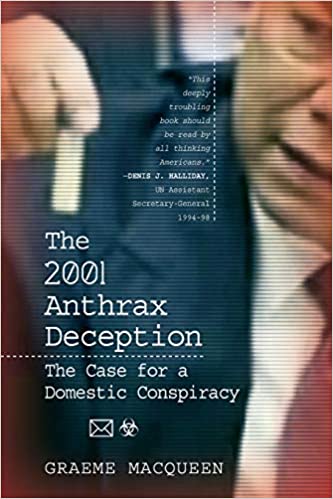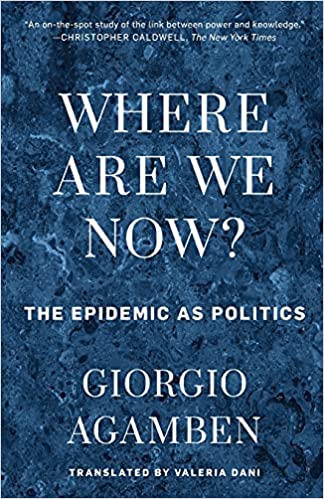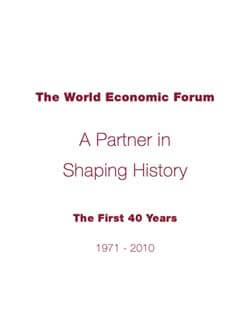
The World Economic Forum Annual Meeting 2010 marks the 40th year of the organization,
which was founded in 1971 as the European Management Forum. In January that year, the first
European Management Symposium was held in Davos, Switzerland. In 1987, the European
Management Forum was renamed the World Economic Forum and the European Management
Symposium became the Annual Meeting, reflecting the expansion of the Forum’s scope and
focus.
Through the years, numerous business, government and civil society leaders have made their way
to the Swiss Alpine resort, the perfect venue for a gathering to consider the major global issues
of the day and to brainstorm on solutions to address these challenges. The Annual Meeting has
also been a critical platform for furthering peace and reconciliation in many parts of the world,
promoting understanding between East and West, introducing emerging economies such as China
and India to the international community, and bringing to the forefront the latest trends and
developments in every field – from information technology to global security, from architecture
to philanthropy.
Davos has been a place where incipient changes in the world are first discerned and where ideas
for changes that have shaken the world have been conceived or refined. What has never changed
since its beginning is the Forum’s dedication to collaboration among stakeholders, the steadfast
adherence to high-level participation of leaders sharing the Forum’s commitment to improving
the state of the world, and the Forum’s trust in the power of dialogue and exchange based on
mutual respect and civility to bridge divides and shape actionable solutions to global challenges.
While many global institutions are notable for the breadth of nations or the powerful political
leaders attending their gatherings, the World Economic Forum Annual Meeting and indeed all
the activities and initiatives of the Forum around the world are distinguished by the active
participation of government, business and civil society figures, both the most experienced and
the most promising, all working together in the collaborative and collegial Spirit of Davos.
This book provides a year-by-year summary of the highlights of the four decades of the World
Economic Forum. For the most part, it tells the Forum’s story through the eyes of its members,
the participants in its activities, and its leadership, as well as through media reports.
What is clear from this compilation of impressions, insights and memories is that the Forum has
evolved from a modest yet groundbreaking attempt to bring European corporate managers and
their stakeholders together to discuss business strategies into an organization that today is widely
regarded as the world’s foremost multistakeholder platform for addressing the most pressing
issues on the global agenda.
Since 1971, the World Economic Forum has undertaken a host of activities, organizing over
1,000 meetings, launching numerous initiatives, publishing various reports annually and convening
thousands of task forces and working groups. The Forum gave special focus to all the most
important issues on the global agenda over the years. This book, however, does not render an
account of everything that the Forum did or all the issues with which it has been concerned.
Rather this history lays out the motivation, strategies and spirit that have driven the Forum’s
development as it has worked to promote and support entrepreneurship in the global public
interest.
It is fitting that in this anniversary year, as people around the world continue to feel the impact
of the global economic crisis, the Forum will be deeply engaged in the Global Redesign Initiative
(GRI). This is a wide-reaching review of the institutions and practices of global governance and
the management of the global economy aimed at determining how the world should restructure
the international system to better tackle the multiple challenges of globalization.
This project is the latest and perhaps most ambitious and innovative manifestation yet of the
Forum’s commitment to entrepreneurship in the global public interest. The Forum is firmly
focused on the future. This history of the past 40 years should serve as an inspiration to our
members, collaborators and staff to continue their work in the years ahead – ever committed to
improving the state of the world.










